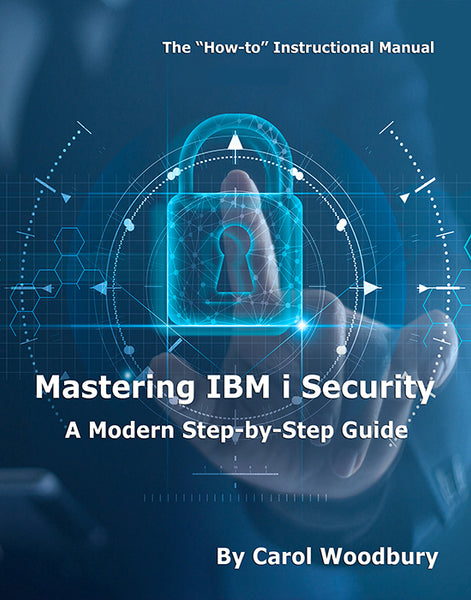It may take a bit of investigation to determine exactly what authorities programmers require, but they rarely need all-encompassing special authorities.
Editor's Note: This article is an extract of the white paper "What Authorities Do Programmers Really Need?" available free from the MC White Paper Center.
Laws and regulations require that users be given only enough authority to do the tasks associated with their jobs. In addition, auditors require IT departments to reduce the number of "powerful" users on the system. As a result, the programming staff comes under scrutiny. Why? Because they have often been given lots of power in the past. In i5/OS terms, that means programmers have been given the *ALLOBJ special authority. The question I am often asked is, "What authorities do programmers need to do their jobs?" Unfortunately, the answer is, "That depends." This article looks at how you can determine the answer to this question for your environment and also explains what authorities programmers do not need.
What Programmers Don't Need: *ALLOBJ Special Authority
It may take a bit of investigation to determine exactly what authorities programmers require, but they rarely need the *ALLOBJ special authority. However, many programmers will insist that it's a requirement to perform their job functions on both development and production systems. I can say with certainly that, unless the programmers double as security officers, they do not need *ALLOBJ special authority assigned to their profiles on a permanent basis.
Giving *ALLOBJ authority to programmers is a bad idea because it provides them with the authority to access every object on the system. Because the actions of an *ALLOBJ user cannot be controlled, you cannot maintain proper change management controls if programmers have been given *ALLOBJ special authority. Even if you have implemented change management software, programmers with *ALLOBJ authority can directly access and modify production-level source. Programmers with *ALLOBJ authority can easily cover up their actions by deleting objects such as joblogs and journal receivers and by clearing the history log. Finally, programmers with *ALLOBJ special authority on production systems can access, modify, or delete production database programs and files; view or download private data; or run encryption routines to decrypt data. All of these actions bring the integrity and availability of your data into question, which is why programmers' authorities are under scrutiny and regulatory compliance requirements are being implemented.
What Programmers Do Require
Now that we know what programmers don't need, we must determine what authorities programmers do require. To begin, look at the tasks programmers perform. If their sole responsibility is architecting, coding, and testing applications (which tends to be the case in larger organizations), the requirements are fairly straightforward. The development environment and change management software you're using will dictate the actual implementation.
Want to learn more? Download the complete white paper "What Authorities Do Programmers Really Need?" from the MC White Paper Center.
as/400, os/400, iseries, system i, i5/os, ibm i, power systems, 6.1, 7.1, V7, SkyView Partners, V6R1















 Business users want new applications now. Market and regulatory pressures require faster application updates and delivery into production. Your IBM i developers may be approaching retirement, and you see no sure way to fill their positions with experienced developers. In addition, you may be caught between maintaining your existing applications and the uncertainty of moving to something new.
Business users want new applications now. Market and regulatory pressures require faster application updates and delivery into production. Your IBM i developers may be approaching retirement, and you see no sure way to fill their positions with experienced developers. In addition, you may be caught between maintaining your existing applications and the uncertainty of moving to something new. IT managers hoping to find new IBM i talent are discovering that the pool of experienced RPG programmers and operators or administrators with intimate knowledge of the operating system and the applications that run on it is small. This begs the question: How will you manage the platform that supports such a big part of your business? This guide offers strategies and software suggestions to help you plan IT staffing and resources and smooth the transition after your AS/400 talent retires. Read on to learn:
IT managers hoping to find new IBM i talent are discovering that the pool of experienced RPG programmers and operators or administrators with intimate knowledge of the operating system and the applications that run on it is small. This begs the question: How will you manage the platform that supports such a big part of your business? This guide offers strategies and software suggestions to help you plan IT staffing and resources and smooth the transition after your AS/400 talent retires. Read on to learn:
LATEST COMMENTS
MC Press Online